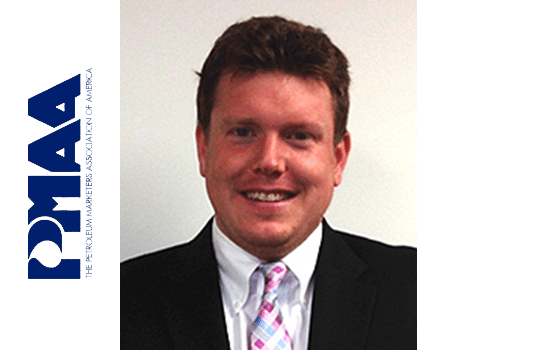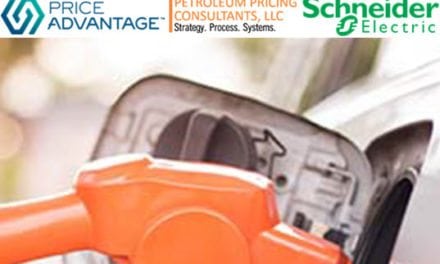By Keith Reid
Rob Underwood has assumed the presidency of the Petroleum Marketers Association of America in the wake of Dan Gilligan’s retirement. Underwood served since 2007 as the association’s director of government relations. This short, introductory interview covers Underwood’s thoughts and goals as he takes the helm.
FMN: What excited you about going after this position when it opened up?
Underwood: I’ve been at PMAA since July 2007 and have worked over the years with all of the association’s executives, board members and the executive committee. I’ve been with PMAA for so long that representing its members has become my life, I really do believe in the industry and I really feel comfortable with the folks I represent–and that’s it. Once you build trust among such a group of people you shouldn’t leave them and I look forward to the years ahead.
FMN: In the galaxy of organization serving the industry what do you think sets PMAA apart?
Underwood: The state associations are what make PMAA’s federation model work. Just about every state is directly or indirectly represented, and we have a group with which we can go into any jurisdiction or any town and a marketer or a state association executive might have a relationship with a lawmaker. I attend quite a few fundraisers in Washington and when I mentioned one of our members from the lawmaker’s state the lawmaker usually knows the marketer or the state Association executive. That broad range of influence is why we have been so effective in our grassroots efforts, and our efforts in Washington.
FMN: What are some of the legislative issues that are on the front burner?
Underwood: The biggest one right now on the motor fuels side is RFS reform, and we’ve taken a proactive approach to highlight our concerns with infrastructure compatibility with higher ethanol blends like E15.
We’re pushing for EPA to lower the corn-based ethanol mandate. We’re not for the repeal of the RFS, and we are certainly okay with the biodiesel mandate–which is great for both motor fuels and the heating oil side. We’re working with our state associations, who in turn we want to work with their legislators to educate them on our concerns and hopefully pressure EPA to maintain a corn-based ethanol volume that’s reasonable such as an E10 blend with some reasonable growth in E85 at the same time.
[Editor’s Note: EPA finally released its proposed volume obligations for 2014-2016, generally holding steady on biodiesel but cutting back ethanol to meet blend wall concerns.]
FMN: Are there any personal initiatives in PMAA you are dying to get working on?
Underwood: Finding additional revenue will be a key focus in my first couple of years. We’re looking to strengthen our relationship with vendors, and build upon our “Best in the U.S.” program where we identify and recognize the best industry vendors and consultants. Marketers want to see what’s out there and that’s probably going to be my biggest push to help generate additional revenue.
Dan’s done a heck of a job over the years and I think he’s leaving PMAA in great shape, but I want to take over and keep moving it forward of course.
FMN: What do you see some of the challenges facing PMAA?
Underwood: The biggest challenge is ensuring that this machine keeps going, and that our effective grassroots campaigns continue under my helm. I want to build upon Dan’s efforts, and make things as successful as possible. Hopefully we can get some big regulatory and legislative wins in the process.
Near-term, I think consolidation is becoming a big issue because as these companies combine it hurts the state associations and that impacts PMAA. If you were a state association and you have three marketing companies that were paying $5000 a year fold up into one company that’s a $10,000 loss in association revenue and that impacts what those associations can provide for their members. We have to be looking at how we manage that in the future.









